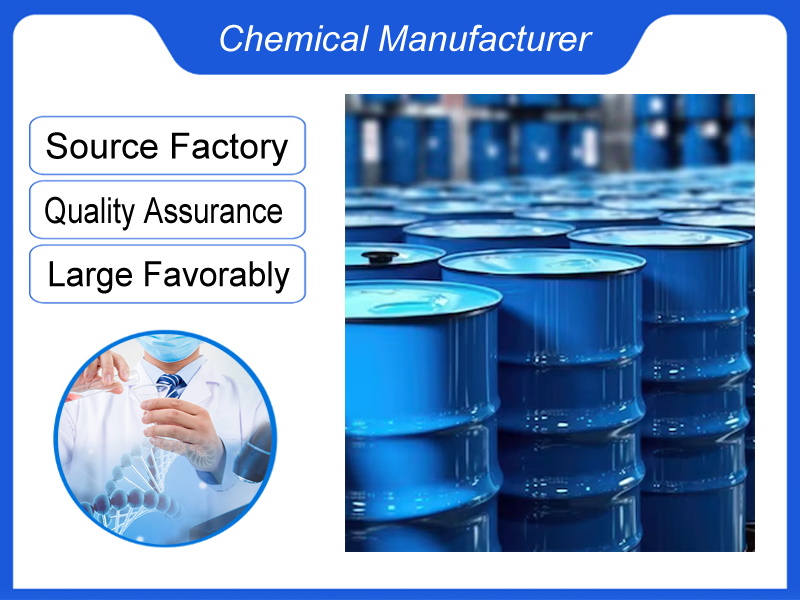
1,1,1,3,3,3-Hexafluoro-2-propanol
We are a manufacturer based in China. We specialize in providing high-quality 1,1,1,3,3,3-Hexafluoro-2-propanol for industrial clients across various sectors. Whether you need chemicals consultation or technical support, our team is here to help.
Category:Chemical Intermediates Own Brand:MT /MOQ:100KG /From China/ B2B only.
Introduction
CAS: 920-66-1
Appearance: colorless transparent liquid
Purity: ≥99.5%
Capacity: 500mt/year
Application: organic intermediate
Package: 250kg plastic/iron drum
Standard: enterprise export
Manufacturer: Jinan Finer Chemical Co., Ltd
Synonyms: HFIP
1.1.1.3.3.3-Hexafluoroisopropanol
1.1.1.3.3.3-Hexafluoro propan-2-ol
Molecular Formula: C3H2F6O
Molecular Weight: 168.04
CAS Registry Number: 920-66-1
EINECS: 213-059-4
HFIP is used as pharmaceutical intermediate and agricultural chemicals intermediates
HFIP can be used as electronic solvent cleaning agent
HFIP can dissolve a large part of polymers such as polyester, polyamide, polyacrylonitrile, polyvinyl acetal and hydrolyzed polyvinyl ester etc. due to such properties so that it can obtain very good application in the analysis and as a polymer re-use, recycling agent
Names and Identifiers
| Name | 1,1,1,3,3,3-Hexafluoro-2-propanol |
| Synonyms | HFIP C3H2F6O JACS-920-66-1 Hexafluoroisopropanol 2H-Hexafluoroisopropano 2-Propanol, hexafluoro- 2H-hexafluoro-2-propanol 2H-Hexafluoroisopropanol Hexafluoroisopropyl alcohol Bis(trifluoromethyl)methanol 1,1,1,3,3,3-hexafluoro-2-propano 1,1,1?,3,3-Hexafluoro-2-propanol 1,1,1,3,3,3-Hexafluoroisopropanol 1,1,1,2,3,3-hexafluoropropan-2-ol 1,1,1,3,3,3-Hexafluoro-2-propanol Sevoflurane USP Related Compound C 2,2,2-Trifluoro-1-(trifluoromethyl)ethanol Ethanol, 2,2,2-trifluoro-1-(trifluoromethyl)- (2,3,4,5,6-pentafluorophenyl) pyrimidine-5-carboxylate 1,1,1,3,3,3-hexafluoro-2-propanolakahfip,hexafluoroisopropanol |
| CAS | 920-66-1 |
| EINECS | 213-059-4 |
| InChI | InChI=1/C11H3F5N2O2/c12-5-6(13)8(15)10(9(16)7(5)14)20-11(19)4-1-17-3-18-2-4/h1-3H |
| InChIKey | BYEAHWXPCBROCE-UHFFFAOYSA-N |
920-66-1 – Physico-chemical Properties
| Molecular Formula | C3H2F6O |
| Molar Mass | 168.04 |
| Density | 1.596g/mLat 25°C(lit.) |
| Melting Point | −4°C(lit.) |
| Boling Point | 59°C(lit.) |
| Flash Point | 4,4°C |
| Water Solubility | 1000 g/L (25 ºC) |
| Solubility | Soluble in water (1000 mg/ml at 25 °C), chloroform, ether, and acetone. |
| Vapor Presure | 269 hPa (30 °C) |
| Appearance | Transparent liquid |
| Specific Gravity | 1.596 |
| Color | White to yellow |
| Maximum wavelength(λmax) | [‘229nm(lit.)’] |
| BRN | 1841007 |
| pKa | pK1:9.42 (25°C) |
| PH | 3-4 (H2O)Aqueous solution |
| Storage Condition | Store below +30°C. |
| Stability | Stable. Incompatible with strong acids, strong bases, alkali metals. |
| Refractive Index | n20/D 1.275(lit.) |
| MDL | MFCD00011651 |
920-66-1 – Risk and Safety
| Risk Codes | R20/22 – Harmful by inhalation and if swallowed. R34 – Causes burns |
| Safety Description | S26 – In case of contact with eyes, rinse immediately with plenty of water and seek medical advice. S36/37/39 – Wear suitable protective clothing, gloves and eye/face protection. S45 – In case of accident or if you feel unwell, seek medical advice immediately (show the label whenever possible.) S27 – Take off immediately all contaminated clothing. |
| UN IDs | UN 2922 8/PG 2 |
| WGK Germany | 2 |
| RTECS | UB6450000 |
| FLUKA BRAND F CODES | 27 |
| TSCA | T |
| HS Code | 29055910 |
| Hazard Note | Corrosive |
| Hazard Class | 8 |
| Packing Group | II |
| Toxicity | LD50 orally in Rabbit: 1500 mg/kg |
920-66-1 – Reference
| ReferenceShow more | 1. Zhang Li Ling, Gao Tingting, Chen Shi Yu, etc. Preparation and characterization of oriented Poly (ε-caprolactone) mic… |
920-66-1 – Introduction
Hexafluoroisopropanol is a special fluorine-containing material with high density, low viscosity and low surface tension. It is transparent under ultraviolet light (<2000A) and has a low refractive index. It can be miscible with water or most organic solvents in any proportion, but it is insoluble in long-chain alkanes. Solubility in water: 1000g/L (25°C)
920-66-1 – Reference Information
| LogP | 1.5 at 25℃ |
| surface tension | 67.1mN/m at 1g/L and 19.8 ℃ |
| Overview | hexafluoroisopropanol (HFIP) is a viscous, pungent, colorless liquid. It is an ideal solvent for dissolving polyamides and esters and can be used for the analysis of nylon. Typically, a small amount of sodium trifluoroacetate can be added to the eluate to reduce aggregation of the sample. Although HFIP has a certain viscosity, its boiling point is very low, and it is usually required to analyze at 40°C to reduce the back pressure of the column. Hexafluoroisopropanol is also a highly polar solvent, which makes the calibration curve of mixed column column become nonlinear. Therefore, Agilent has developed a special chromatography column for this solvent-PL HFIPgel chromatography column, which has a porous structure that is not affected by the solvent. |
| Application | hexafluoroisopropanol (HFIP) is an important fluorine-containing fine chemicals, it can be used to prepare various fluorine-containing chemicals such as fluorine-containing surfactants, fluorine-containing emulsifiers, fluorine-containing medicines and the like, or as a good solvent. The efficiency of rhodium (I)-Catalyzed [4 2] intramolecular cycloaddition reaction of ether-bound alkynyl dienes and [5 2] cycloaddition reaction of alkynyl vinyl cyclopropane can be improved; liquid Phase peptide chemical solvents; Highly soluble solvents for peptides and peptide intermediates; For analysis of various polymers. |
| Application | hexafluoroisopropanol (HFIP) is a new type of fluorine-containing compound, which is a highly polar solvent, it is easy to mix with water and many organic solvents, has good thermal stability, and has good transmittance to ultraviolet light. These properties enable HFIP to be an ideal solvent in many polymerization systems: HFIP is an intermediate for use in pharmaceuticals, for the synthesis of the inhaled anesthetic sevoflurane, and for the synthesis of Agrochemicals: HFIP can be used as a solvent detergent in electronic aspects: HFIP can dissolve a large part of the polymer, such as polyester, polyamide, polyacrylonitrile, polyacetal and hydrolyzed polyvinyl Ester, etc, because of this property, it can be used in the analysis and as a regeneration agent for the reuse of high polymers. hexafluoroisopropanol can be used for the preparation of fluorine-containing surfactants, fluorine-containing emulsifiers, fluorine-containing pharmaceuticals and other high-end chemicals, and as a solvent or cleaning agent for the Electronic Industry fluorinated solvents, the efficiency of rhodium (I)-Catalyzed [4 2] intramolecular cycloaddition reaction of ether-bound alkynyl dienes and [5 2] cycloaddition reaction of alkynyl vinyl cyclopropane can be improved; liquid Phase peptide chemical solvents; Highly soluble solvents for peptides and peptide intermediates; For analysis of various polymers |
| synthesis method | hexafluoroacetone (HFA, hexafluoroace-tone) catalytic hydrogenation reduction synthesis is usually used, and gas phase method or liquid phase method can be used. HFA, which is gaseous at normal temperature, is reacted with excess hydrogen in a tubular reactor under the action of a catalyst. The gas phase method has a fast reaction speed, but the reaction temperature is higher, and the side reaction is easy to occur. HFA combines with water to form hydrates with different water. The catalytic hydrogenation reaction of HFA hydrate in liquid phase can be carried out at lower temperature. The preparation of HFIP by catalytic reduction method requires the use of expensive catalysts, and HFA often contains a small amount of impurities such as hydrogen fluoride and hydrogen chloride, which easily leads to catalyst poisoning, thereby increasing the cost and reducing the reaction selectivity. 45kg of hexafluoroacetone hydrate (containing 1% catalyst) was input into a 50L reaction kettle, and the vacuum-nitrogen and nitrogen-hydrogen replacement were carried out successively. Hydrogen is introduced to normal pressure, heated to 100 ° C., stirring speed 30 rpm, hydrogen is introduced to 1MPa, and the reaction is carried out at constant pressure until there is no pressure drop for 1 hour. Reduce temperature and pressure, press out the material and filter. |
If you're ready to take the next step, Leave your message below and we’ll reply soon. 20+ years of chemical manufacturing & export experience, a partner you can trust.





